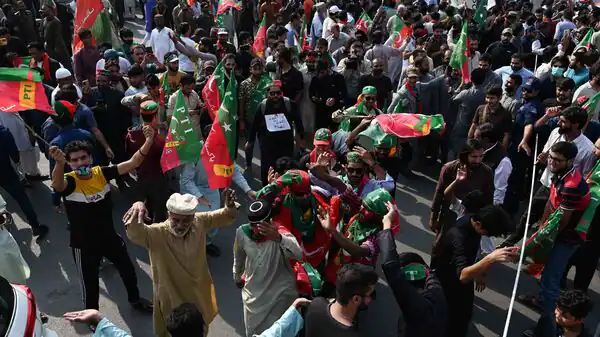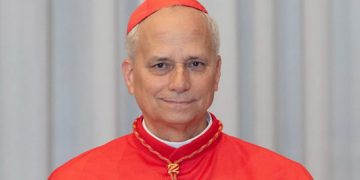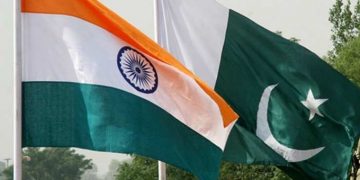Islamabad: Reversing its earlier decision, jailed former prime minister Imran Khan’s Pakistan Tehreek-e-Insaf Monday said that the party-backed independent candidates, who won the February 8 elections, will join the rightwing Sunni Ittehad Council.
The party had earlier decided that its members elected to the National Assembly and the Punjab provincial assembly would join Majlis Wahdat-i-Muslimeen (MWM), a Shia party, while those elected in the Khyber-Pakhtunkhwa (KP) would become part of Jamaati-e-Islami (JI), which is a hardline Sunni religious party.
The Sunni Ittehad Council (SIC) is an alliance of Islamic political and religious parties in the Muslim-majority country that represents followers of the school of Sunni Islam.
“Our candidates in the National Assembly, Punjab, and Khyber Pakhtunkhwa assemblies will join the Sunni Ittehad Council,” Pakistan Tehreek-e-Insaf Chairman Barrister Gohar Khan said while addressing a press conference along with leaders of the MWM and SIC.
PTI Secretary General Omar Ayub Khan, Information Secretary Rauf Hasan and MWM chief Allama Raja Nasir Abbas, and Chairman of SIC Sahibzada Hamid Raza were present.
“Our candidates have submitted their affidavits with us and with their consent today we are announcing that PTI-supported independents are joining the Sunni Ittehad Council,” he added.
The winning independent candidates had to join a party within 3 days after the notification of the results of the February 8 elections.
Gohar also said the PTI made a “formal agreement” with the Sunni Ittehad Council and the same would be submitted to the Election Commission of Pakistan (ECP) with a request to allocate the reserved seats according to the party strength and under law.
“Therefore, to protect our reserved seats and provide the cover to our members, we have reached a formal agreement under which all our candidates have joined the party and we will present this documentation before the ECP,” he said.
PTI candidate for the prime minister’s post, Omer Ayub Khan, said on the occasion that the decision to join a political party was taken to get the reserved seats.
“This is because the quota of reserved seats lies with political parties. Coming together with the Sunni Ittehad Council would increase the PTI’s strength in the National Assembly,” he said, adding the party would form a government in the centre and two provinces.
He said the priority of the party was to secure the release of incarcerated leaders like Imran Khan, his wife Bushra Bibi, Shah Mahmood Qureshi, Parvez Elahi, and others.
SIC chief Raza and MWM leader Abbas in their remarks pledged support to the PTI.
With the PTI’s decision to join a party, which is registered with the ECP, the country moved a step forward to the convening of the National Assembly or the lower house, for its maiden session which should be held by February 29.
Though independent candidates backed by the party won the maximum number of seats in Parliament, the Pakistan Muslim League-Nawaz (PMLN) and the Pakistan Peoples Party (PPP) – have announced that they will form a coalition government after the elections resulted in a hung Parliament.
The post-poll alliance by the PML-N and the PPP could mean that PTI will not be able to form the next federal government, prompting Khan’s party to allege that the two rival parties were trying to steal the people’s mandate with the help of the powerful establishment.
Khan’s beleaguered party received a major boost Saturday when a senior government official in charge of the election process in the garrison city of Rawalpindi alleged that rigging took place and dragged the Chief Election Commissioner and the Chief Justice into it.
Buoyed by the allegations of vote rigging, the PTI Sunday demanded a judicial probe into the manipulation of the results of the elections.
Independent candidates – a majority backed by former prime minister Imran Khan’s PTI party won 93 National Assembly seats in the election.
The PML-N won 75 seats while the PPP came third with 54 seats. The Muttahida Qaumi Movement Pakistan (MQM-P) has also agreed to support them with their 17 seats.
To form a government, a party must win 133 seats out of 265 contested seats in the 266-member National Assembly.
PTI






































